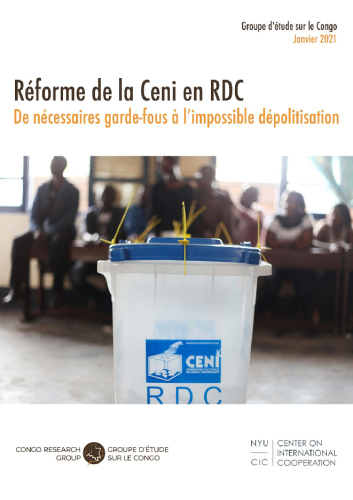A crucial issue in Congolese political life is electoral reform. A new report published by CIC’s Congo Research Group focuses on the electoral commission (CENI), the control of which has, despite its mandate, become a key factor in obtaining or retaining power. The report reviews the views of different stakeholders in Congolese political life and demonstrates why it is today unlikely, if not impossible, to be able to completely depoliticize the CENI.

As a result, the future CENI is likely to be a politicized, multiparty body. This report therefore argues that for credible elections to occur in the DRC, it is necessary to create safeguards that can reduce continued political influence on CENI are necessary if the Democratic Republic of the Congo is to have credible elections in 2023
This report therefore argues that for credible elections to occur in the DRC, it is necessary to:
- Create safeguards that can reduce continued political influence on CENI are necessary if the DRC is to have credible elections in 2023
- Hold the members of the future CENI accountable, by promoting financial and operational transparency mechanisms within the CENI
- Favour a consensual framework to initiate the reform of the CENI
Finally, the report emphasizes that strengthening CENI’s structural independence in theory, through a new law, will not be sufficient to guarantee the Congolese people transparent and credible elections in 2023.
Read the full report in French here.


